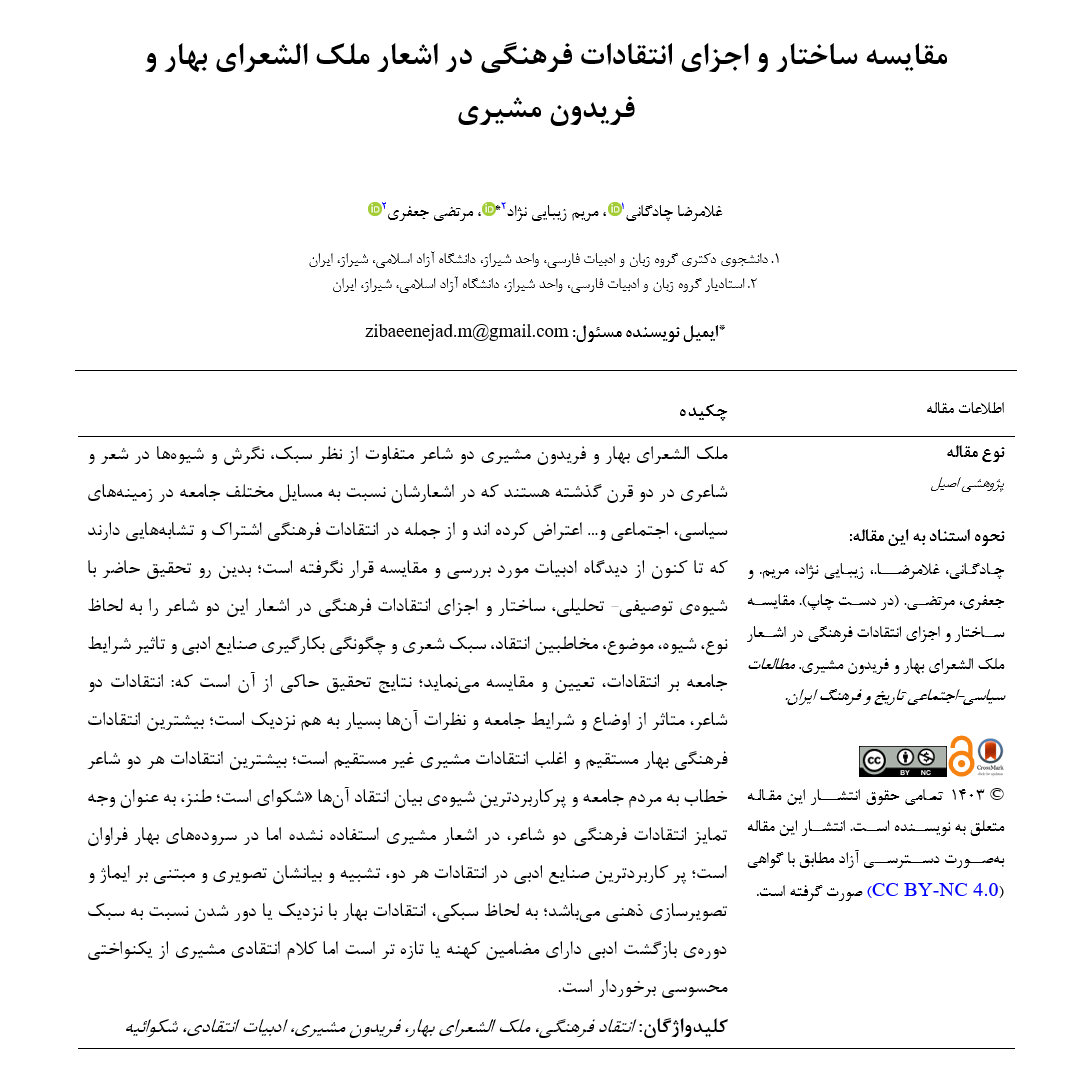Comparison of the Structure and Elements of Cultural Criticisms in the Poetry of Malek-o-Sho'arā Bahar and Fereydoun Moshiri
Keywords:
cultural criticism, Malik al-Shaarai Bahar, Fereydon Moshiri, critical literature, “SHAKVAIIYEH”Abstract
Malek-o-Sho'arā Bahar and Fereydoun Moshiri are two distinct poets in terms of style, perspective, and poetic approach over the past two centuries. Their poetry expresses critiques on various societal issues, including political and social matters. They share similarities in their cultural criticisms, which have not yet been studied or compared from a literary perspective. Thus, this study employs a descriptive-analytical method to determine and compare the structure and elements of cultural criticisms in the poetry of these two poets, considering aspects such as type, method, subject, audience of the criticism, poetic style, and the influence of societal conditions on the critiques. The study’s results indicate that both poets’ criticisms are deeply influenced by the socio-political conditions of their times, showing considerable similarities. Bahar’s cultural critiques are predominantly direct, while Moshiri’s are mostly indirect. Both poets direct most of their critiques towards society, employing “complaint” as the most common style of expression. Satire, as a distinguishing feature of cultural critiques, is absent in Moshiri’s poetry but abundant in Bahar’s works. The most commonly used literary devices in their critiques are metaphor and visual imagery, which are often based on imagery and mental visualization. In terms of style, Bahar’s critiques vary between traditional and contemporary themes, depending on his proximity to the style of the Literary Return period, while Moshiri’s critical tone remains notably uniform.
Downloads








